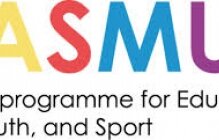Findings of the Erasmus Impact Study: Participation in Erasmus increases employability and job prospects
Jue, 25/09/2014
On 22 September 2014 the findings of the Erasmus Impact Study have been presented in Brussels by Androulla VASSILIOU Member of the European Commission for Education, Culture, Multilingualism and Youth. The student exchange program launched 27 years ago counts among the most successful programs of the European Union with more than 3 million students participating in exchanges.
The Erasmus Impact Study measured for the first time the real impact of Erasmus on employability skills. Ms Vassilou underlined that “tests before and after their stay abroad reveal that students return not only more confident, more tolerant towards other cultures, but also quicker to solve problems, better equipped to adapt to new situations and with improved organisational skills. These are personality traits which are highly valued by more than 90% of employers, according to the study.”
To gain an Erasmus experience during their studies or VET years is an advantage for young people in the job market. According to Ms Vassilou the study showed that “young people who study or train abroad are half as likely to face long-term unemployment compared with those who stay at home. They also increase their chances of developing an exciting and fulfilling career. They are given greater professional responsibility, according to 64% of employers interviewed. And their job environment is more international”. Erasmus traineeships often lead to a job offer in the host company abroad or even foster the development of an entrepreneurial attitude.
In the press conference Ms Vassilou also stressed that “moving abroad during studies changes lives in many other ways too. More than 40% of former Erasmus students have changed their country of residence or work at least once since graduation, double the number of those who were not mobile during their studies. And almost one in three former Erasmus students met their long-term partner while abroad!”
The study's findings deliver important messages for the future and how to help to reduce youth unemployment in the EU: studying or training abroad will increase your job prospects. Ms Vassilou drew attention to the fact that “the new Erasmus+ programme will offer EU grants to nearly four million people between 2014 and 2020, allowing them to experience life in another country through studies, training, teaching or volunteering.”
incluD-ed is especially happy that inclusion is seen an important and topic by the new Erasmus+ program which offers specific support to people with special needs, from disadvantaged backgrounds or from remote areas. Nevertheless, incluD-ed deplores the fact that in the Erasmus Impact Study people with special needs have not been considered explicitly. incluD-ed could not find any references to students and trainees with disabilities and encourages the responsible of the next impact study of the programme to do this in order to have better data on the participation of students with disabilities in the programme.
incluD-ed will continue to encourage young people with disabilities to participate in the Erasmus+ programme as exchange students or trainees so that they use the chance this programme gives them to enhance their employability and to increase their job prospects.

















